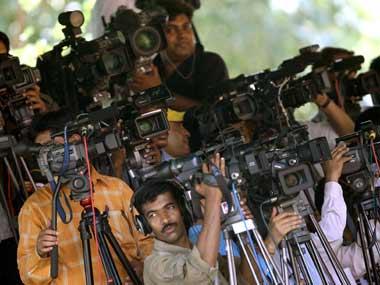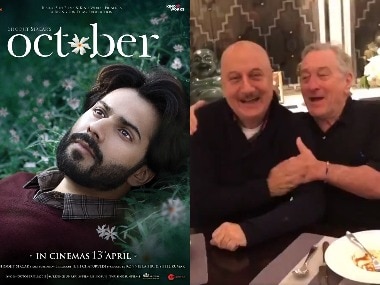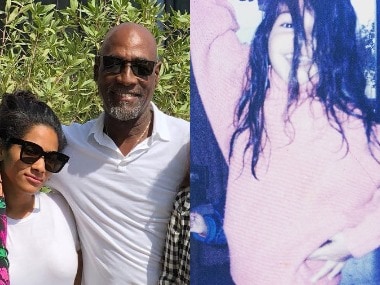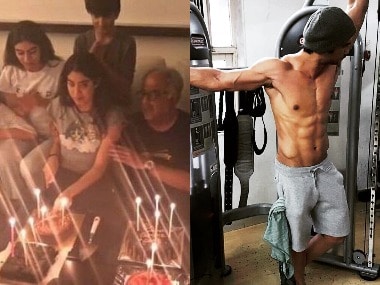Ten years since The Wire finale: Mix of gritty story and fantastic characterisation made this a perfect TV show
Breaking Bad was a great TV show. And indeed, you can find a lot of articles promising that it was the ‘best show to hit our TV screens’. But read just a little further and you will, more often than not, find the rider attached: ‘since The Wire.’
Even today, 10 years after its series finale aired, The Wire continues to be the peak of peak TV. Along with The Sopranos, Game of Thrones and the above mentioned Breaking Bad, it proved for once and for all, that we love anti-heroes. We want our characters every shade of grey. We want to hate them and empathise with them at the same time. We want complexity, we want twists and we want people to die.
The Wire gave us all of that and some more. Picking out a cast of nobodies, it developed them into characters so rich and layered that they could spawn cults. In Jimmy McNulty, it found its lead, the cop with a wrecked personal life who was nonetheless an excellent detective. It placed him alongside Kima Greggs, Cedric Daniels and Lester Freamon, each with their own brilliance and their own flaws as they sought to do the work of “good police” in Baltimore.
In a police drama like The Wire, you expect all the attention to be on the cops. Except the two most intriguing characters in the show work on the wrong side of the law. The first, Stringer Bell, is second-in-command of the Barksdale crew (the preeminent drug gang in the first three seasons). Working to streamline the drug trade, Stringer took classes at community college and implemented corporate practices in his organisation. In a career-defining role, Idris Elba portrayed Stringer as a man with a silky demeanour who could take the most cold-hearted decisions if it benefited the “business”.
At odds with both the drug dealers and the police was Omar Little, a gay stick-up man who robbed drug dealers for a living and conformed to zero stereotypes. Michael K Williams brought him to life as a chilling presence, with a scar across his face and haunting tune on his lips. As someone who could almost single-handedly rob entire drug crews, Omar inspired fear and respect. His insistence on “living by a code” made him a fan favourite and his occasional teaming up with the police made for some intriguing storylines.
At its centre, a realistic, unflinching and well-depicted story
The best part about The Wire though, was that despite having these brilliant characters, it was rarely dependent on them. For the aspect which really drove the show was the story. Most shows follow a plotline which allows for neat standalone episodes. They introduce a major plot point and conclude it by the end of that episode. The Wire could not be bothered with that. It was more a novel transmuted to TV as the plot developed over the entire season. In fact, the show was less concerned with entertaining the audience than it was with portraying reality, as dirty as it was.
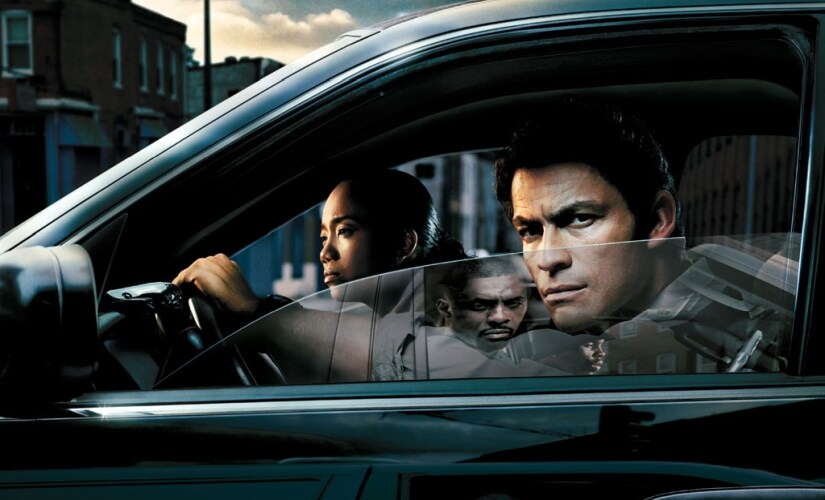
Kima Greggs, Stringer Bell and Jimmy McNulty in a still from The Wire. Image courtesy: thewire.wikia.com
The first season introduced us to the Baltimore drug scene. On one side was the kingpin Avon Barksdale and his crew while on the other, McNulty and the police. The show gave us all the perspectives we could hope for, right from the top bosses on both sides to the lowest level people on the streets. While the drug dealers were easy to vilify, the show gave us tainted cops galore as well. The police officers were all compromised, either cutting corners to get that next promotion or pressurised into chasing impossible crime stats.
After successfully portraying the drug scene and setting up a premise which could easily spawn multiple seasons, the show took a hard turn in season 2 as it chronicled the lives of dockworkers. It was a risk moving away from the tested formula used in the first season but The Wire executed this season perfectly. New characters were introduced who again managed to make the audience simultaneously despise and care for them, and the constant need to compromise while trying to do good was highlighted.
The third season moved the show back to more familiar setting as the drug trade came back into focus with an additional scrutiny of the political system and its effects on the city. In one of the show’s best plotlines, this season gave us Hamsterdam, Major Bunny Colvin’s attempt to legalise drugs in certain parts of the city. The show made an extremely compelling case for the idea even though it was jettisoned by the end of the season as details of the initiative leaked out to the larger public.
Season 4 shifted focus again, this time to schools and the education system at large. The show also put in place a new drug kingpin, Marlo Stanfield, whose callousness made Stringer feel like a teddy bear. The developments in this season set up the stage for a fascinating final season as the police took on the Marlo crew.
True to form however, the show swivelled and found a new target in the media — in particular a newspaper called The Baltimore Sun — and exposed the problems plaguing it. The larger plot however remained the city’s dysfunctional political system and the problems it created for law enforcement.
“It is Baltimore, gentlemen, the Gods will not save you”
The Wire was never about happy endings. Its creator David Simon called it an “angry show”, a description which seems more fitting with every episode you watch. The Wire was killing off important characters way before Game of Thrones became mainstream and it pledged allegiance only to the story and nothing else. It resorted to flashbacks extremely rarely and the accents meant the show demanded your complete and undivided attention. But the meticulous writing and the painstaking attention to detail meant that you were invariably rewarded for that attention.
A show with such varied perspectives was bound to be quotable and The Wire recognised that quality about itself. It began each episode with an epigraph which served to forever sear some plotlines into our brains. It gave us gems like “You cannot lose if you do not play”, “The Gods will not save you” and “Come at the king, you best not miss”.
The Wire also showcased the helplessness of individual idealists. It exposed the rigged system which all but ensured that even people in positions of power were rarely able to bring about real change. The drug trade took hits here and there but always continued. The political system stayed rotten and the media continued its decline. Further, as the show trained its eye to different aspects of city life, it stayed unflinchingly loyal to reality.
The beauty of The Wire lies in many things. You could watch it for the fantastic story and its deft handling over the full seasons. You could watch it for the incredible actors and the powerful characters they brought to life. You could watch it get a sense of how the American city functions and how the urban poor live.
Or you could watch it simply because it meshes it all together so perfectly.
Published Date: Mar 09, 2018 10:48 AM | Updated Date: Mar 09, 2018 11:51 AM
